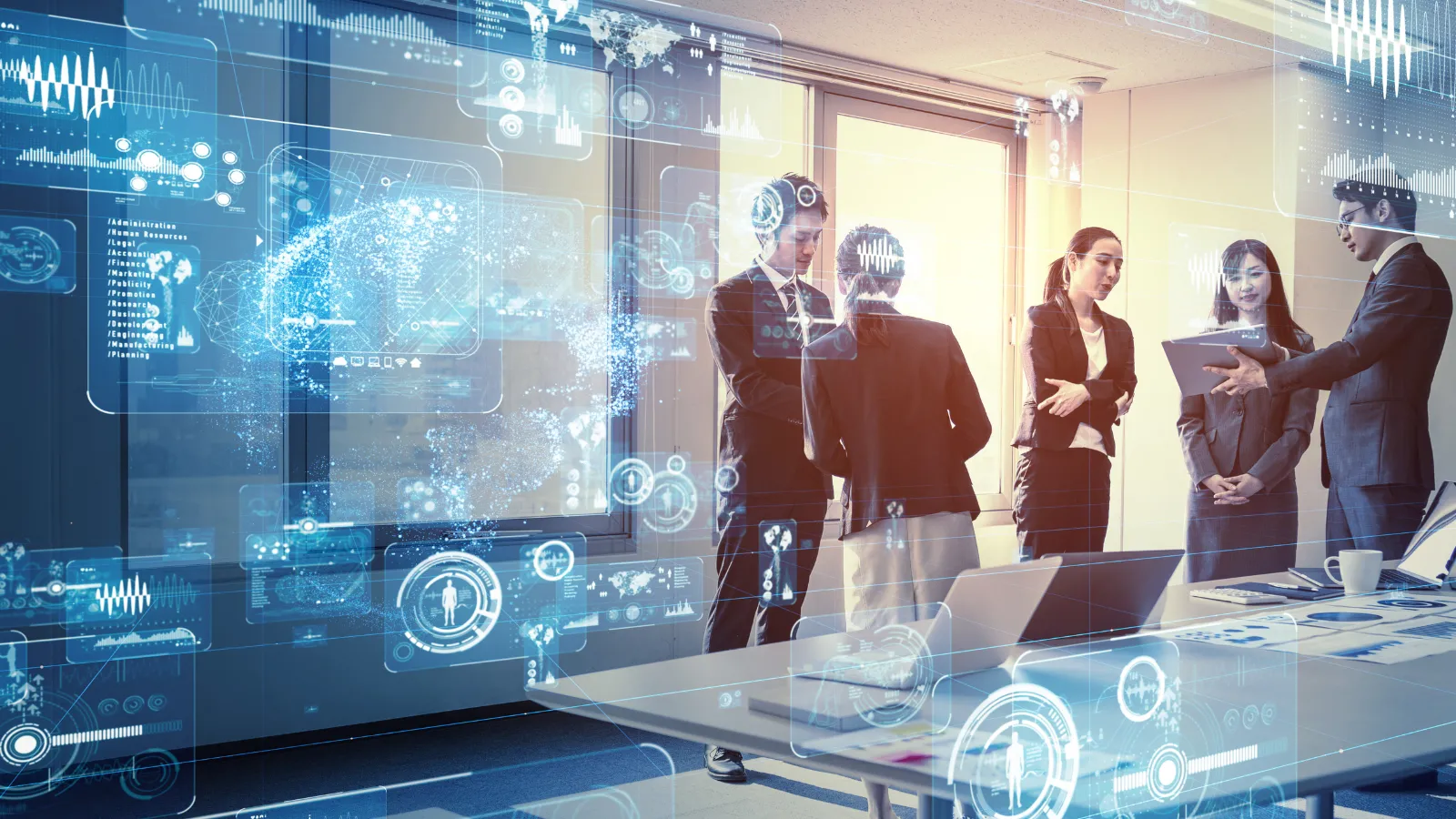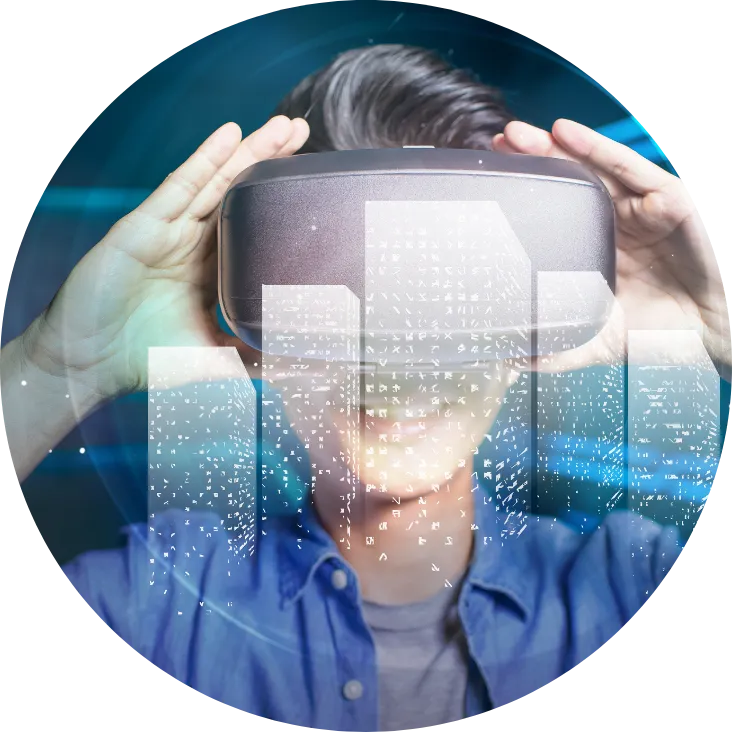SCREENING, DIAGNOSIS, THERAPY
Technology & Tools

Stay ahead in supporting employee mental health with cutting-edge technology tools. Our L&D programme offers insights into the latest assessment and assistance tools available.
From AI-driven chatbots providing immediate support to virtual reality therapy sessions offering immersive healing experiences, we cover the spectrum of innovative solutions. Equip your team with knowledge on how these tools can revolutionise mental health support in the workplace, promoting well-being and productivity.
In our rapidly evolving digital landscape, technology plays a pivotal role in supporting mental health and well-being initiatives within corporate environments. Our L&D programme offers insights into cutting-edge assessment and assistance tools that leverage the latest advancements in technology to enhance mental health support for employees. From wearable devices monitoring physiological indicators to virtual reality therapy sessions providing immersive healing experiences, we explore a wide range of innovative solutions designed to promote well-being and productivity.
Through personalised insights, remote support options, and gamification elements, these tools empower individuals to effectively prioritise and manage their mental well-being in today’s fast-paced world. Join us as we delve into the world of technology-driven mental health solutions and discover how these tools can revolutionise support strategies within your organisation. Together, let’s harness the power of technology to foster a culture of mental well-being and resilience among your workforces.
GAS DISCHARGE VISUALISATION (GDV)
Bio-Well is a revolutionary tool based on Electro-Photonic Imaging or Gas Discharge Visualisation technique (Kirlian effect) made specially for express-assessment of the energetic state of a person. Interpretation of the scans is based on Acupuncture points concept, Ayurveda and many scientific and clinical research made throughout 20 years. GDV is used in alternative medicine to capture images of the energy field surrounding living organisms. It analyses these images to assess an individual’s bioenergetic field, potentially indicating health issues or psychological states.


BIOLINE QEEG BRAIN SCREENING
qEEG (quantitative electroencephalography) measures brain wave patterns to diagnose and treat mental health issues by comparing them to standard data. This helps spot brain problems related to disorders and tailor treatment plans. In therapy, qEEG-guided neurofeedback trains patients to control their brain activity, which can reduce symptoms and improve cognitive functions. It also lets clinicians track progress and adjust treatment as needed.
BIOSEES EVO. (AI AND VR TECHNOLOGY FOR MENTAL HEALTH TREATMENT)
BioSees Evo is a cutting-edge bio-neurofeedback software that uses AI and VR to improve neurofeedback and biofeedback sessions. It offers over 24 ready-made therapy and assessment programs for mental health and cognitive improvement. Practitioners can also create custom protocols and get real-time feedback through interactive VR games. By blending AI with VR, BioSees Evo aims to provide personalized and immersive therapy that enhances brain function and mental health.


DERMATOGLYPHICS MULTIPLE INTELLIGENCE TEST (DMIT)
The Dermatoglyphics Multiple Intelligence Test (DMIT) analyses fingerprints to assess a person’s natural talents and strengths by mapping brain patterns. Known as dermatoglyphic brain mapping, this method provides insights into behavior, learning styles, and career preferences by examining neurological patterns in fingerprints. The DMIT evaluates various types of intelligence, including cognitive, emotional, and creative, as well as other quotients like IQ and EQ. It’s often used in educational and career counseling to help individuals understand their unique abilities and get guidance on career paths, relationships, and stress management.
Our technological tools and their applications
✓ WEARABLE DEVICES
Wearable technology like smart headbands, smartwatches and fitness trackers can monitor physiological indicators such as heart rate variability, sleep patterns, and activity levels, providing insights into an individual’s stress levels and overall well-being.
✓ VIRTUAL REALITY
VR technology is being used for exposure therapy, mindfulness exercises, and relaxation techniques. It can create immersive environments to simulate real-life scenarios and help individuals manage anxiety, phobias, and PTSD symptoms.
✓ ARTIFICIAL INTELLIGENCE
AI-powered chatbots and virtual assistants are being developed to provide personalised mental health support, deliver psychoeducation, offer coping strategies, and even conduct initial assessments.
✓ TELEMEDICINE PLATFORMS
Telehealth platforms enable individuals to access mental health services remotely, including therapy sessions, psychiatric consultations, and support groups, using video conferencing and secure messaging systems.
✓ BIOFEEDBACK DEVICES
These devices measure physiological responses such as heart rate, skin conductance, and muscle tension, allowing individuals to learn how to regulate their physiological responses to stress through techniques like biofeedback and neurofeedback.
✓ DIGITAL BIOMARKERS
Researchers are exploring the use of digital biomarkers derived from smartphone usage, social media activity, typing patterns, and voice recordings to passively monitor mental health indicators and detect early signs of mood changes or mental health disorders.
✓ ONLINE COGNITIVE ASSESSMENTS
Web-based cognitive assessments and digital neuropsychological tests are being used to evaluate cognitive function, memory, attention, and executive function, aiding in the diagnosis and monitoring of conditions like depression, anxiety, ADHD, and dementia.
✓ SENSOR TECHNOLOGY
Advancements in sensor technology have led to the development of wearable biosensors and environmental sensors capable of detecting physiological and environmental factors that impact mental health, such as air quality, light exposure, and noise levels.
✓ NEUROFEEDBACK
A non-invasive therapy that utilises real-time monitoring of brainwave activity to help individuals regulate their brain function. Through this process, individuals learn to self-regulate their brain activity, leading to improvements in various aspects of mental health, such as reducing anxiety, improving attention and focus, and managing mood disorders.

We’re Ready To Partner
Contact Us or for immediate service
